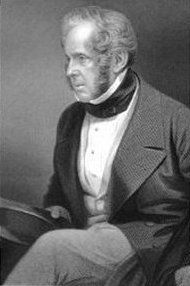London Protocol (1832) on:
[Wikipedia]
[Google]
[Amazon]
The London Conference of 1832 was an international conference convened to establish a stable government in

Protocol of London, 1832
{{Authority control 1832 in London 19th-century diplomatic conferences 1832 in international relations 1832 conferences May 1832 History of modern Greece Diplomatic conferences in the United Kingdom Greece–United Kingdom relations Conferences in London Succession acts Otto of Greece Henry John Temple, 3rd Viscount Palmerston
Greece
Greece, officially the Hellenic Republic, is a country in Southeast Europe. Located on the southern tip of the Balkan peninsula, it shares land borders with Albania to the northwest, North Macedonia and Bulgaria to the north, and Turkey to th ...
. Negotiations among the three Great Powers ( Britain, France
France, officially the French Republic, is a country located primarily in Western Europe. Overseas France, Its overseas regions and territories include French Guiana in South America, Saint Pierre and Miquelon in the Atlantic Ocean#North Atlan ...
and Russia
Russia, or the Russian Federation, is a country spanning Eastern Europe and North Asia. It is the list of countries and dependencies by area, largest country in the world, and extends across Time in Russia, eleven time zones, sharing Borders ...
) resulted in the establishment of the Kingdom of Greece under a Bavarian prince. The decisions were ratified in the Treaty of Constantinople later that year. The treaty followed the Akkerman Convention which had previously recognized another territorial change in the Balkans
The Balkans ( , ), corresponding partially with the Balkan Peninsula, is a geographical area in southeastern Europe with various geographical and historical definitions. The region takes its name from the Balkan Mountains that stretch throug ...
, the suzerainty of the Principality of Serbia.
Background
Greece
Greece, officially the Hellenic Republic, is a country in Southeast Europe. Located on the southern tip of the Balkan peninsula, it shares land borders with Albania to the northwest, North Macedonia and Bulgaria to the north, and Turkey to th ...
had won its independence from the Ottoman Empire
The Ottoman Empire (), also called the Turkish Empire, was an empire, imperial realm that controlled much of Southeast Europe, West Asia, and North Africa from the 14th to early 20th centuries; it also controlled parts of southeastern Centr ...
in the Greek War of Independence
The Greek War of Independence, also known as the Greek Revolution or the Greek Revolution of 1821, was a successful war of independence by Greek revolutionaries against the Ottoman Empire between 1821 and 1829. In 1826, the Greeks were assisted ...
(1821–1829) with the help of Britain, France and Russia. In the London Protocol of 3 February 1830, the three powers had assigned the borders of the new state. However, when the governor of Greece, Ioannis Kapodistrias
Count Ioannis Antonios Kapodistrias (; February 1776 –27 September 1831), sometimes anglicized as John Capodistrias, was a Greek statesman who was one of the most distinguished politicians and diplomats of 19th-century Europe.
Kapodistrias's ...
was assassinated in 1831 in Nafplion, the Greek peninsula plunged into confusion. The Great powers sought a formal end of the war and a recognized government in Greece.

Conference of London
In May 1832, British Foreign Secretary Palmerston convened with French and Russian diplomats, and, without consultation of the Greeks, decided that Greece should be a monarchy. The convention offered the throne to theBavaria
Bavaria, officially the Free State of Bavaria, is a States of Germany, state in the southeast of Germany. With an area of , it is the list of German states by area, largest German state by land area, comprising approximately 1/5 of the total l ...
n Prince, Otto. They also established the line of succession which would pass the crown to Otto's descendants, or his younger brothers should he have no issue. It was also decided that in no case would the crowns of Greece and Bavaria be joined in a personal union
A personal union is a combination of two or more monarchical states that have the same monarch while their boundaries, laws, and interests remain distinct. A real union, by contrast, involves the constituent states being to some extent in ...
. As co-guarantors of the monarchy, the Great powers also empowered their ambassadors in Constantinople
Constantinople (#Names of Constantinople, see other names) was a historical city located on the Bosporus that served as the capital of the Roman Empire, Roman, Byzantine Empire, Byzantine, Latin Empire, Latin, and Ottoman Empire, Ottoman empire ...
, the Ottoman capital, to secure the end of the Greek War of Independence
The Greek War of Independence, also known as the Greek Revolution or the Greek Revolution of 1821, was a successful war of independence by Greek revolutionaries against the Ottoman Empire between 1821 and 1829. In 1826, the Greeks were assisted ...
.
On 21 July 1832 British ambassador Sir Stratford Canning and the other representatives concluded the Treaty of Constantinople, which set the boundaries of the new Kingdom of Greece along the Arta–Volos line.
References
Protocol of London, 1832
{{Authority control 1832 in London 19th-century diplomatic conferences 1832 in international relations 1832 conferences May 1832 History of modern Greece Diplomatic conferences in the United Kingdom Greece–United Kingdom relations Conferences in London Succession acts Otto of Greece Henry John Temple, 3rd Viscount Palmerston